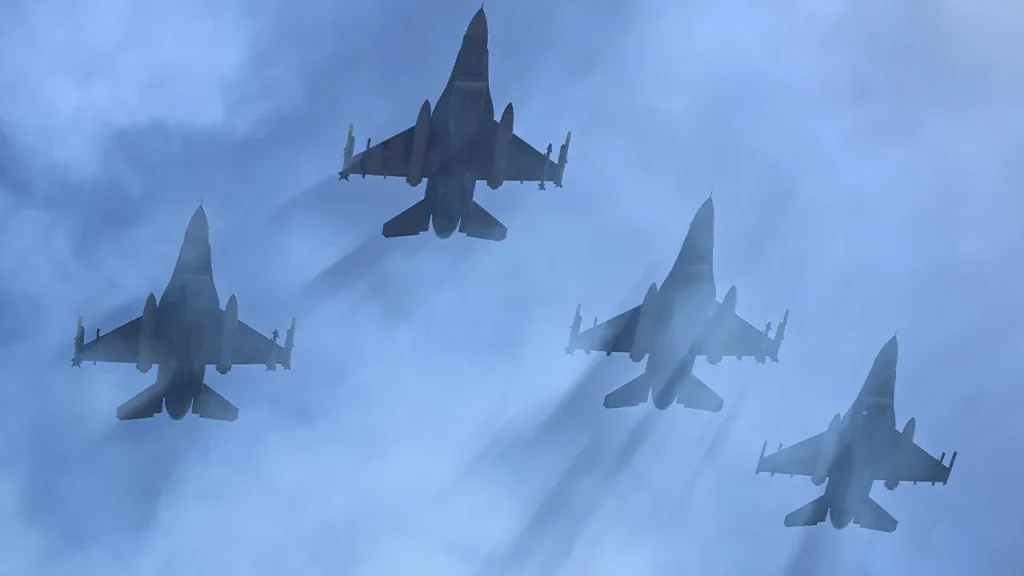American F-16 fighter jets have been deployed to the Middle East by the U.S. Central Command (CENTCOM) in a display of commitment to Israel amid rising tensions with Iran. While the specifics of the deployment were not disclosed, it was confirmed that the jets originated from the 480th Fighter Squadron in Germany. Questions regarding a potential Israeli retaliatory attack on Iran following recent missile strikes were met with ambiguity, but White House National Security Council communications director John Kirby affirmed the U.S.’s dedication to Israel’s security and willingness to make necessary force posture changes.
The United States has been enhancing its regional defenses for months, providing critical support to Israel during recent missile attacks. This assistance includes defending against missile strikes in April and earlier in the month, signaling a strong alliance between the two nations. Additionally, the U.S. has assured Saudi Arabia of its readiness to defend the kingdom against potential attacks by Iran or its proxy forces, offering reassurance to Gulf states on high alert. The international community closely monitors Israel’s conflicts with Iranian proxies Hamas and Hezbollah, hoping to prevent a full-scale war between Israel and Iran, both armed with advanced military capabilities.
Secretary of State Antony Blinken engaged in diplomatic efforts in the Middle East to de-escalate tensions, meeting with UAE Foreign Minister Sheikh Abdullah bin Zayed Al Nahyan to discuss ending the conflict in Gaza and securing the release of hostages held by Hamas. Efforts also focused on establishing peace through governance, security, and reconstruction, striving to ensure stability and lasting peace between Israelis and Palestinians. While the Biden administration advocates for a two-state solution, Israeli Prime Minister Benjamin Netanyahu remains opposed, complicating peace negotiations in the region.
Discussions between Blinken and regional allies also addressed Israel’s operations in Lebanon, particularly efforts to combat the threat posed by Hezbollah. Emphasizing the diplomatic implementation of United Nations Security Council Resolution 1701, the U.S. aims to eliminate Hezbollah’s influence in Lebanon, challenging the group’s entrenchment within the country. Conversations with Lebanese officials highlighted the humanitarian impact of Israeli operations, addressing civilian casualties and striving to safeguard Lebanon’s security and stability by countering the influence of Iran and Hezbollah.
Amid diplomatic efforts, the U.S. expressed support for the U.N. Interim Force in Lebanon and emphasized the importance of preserving the safety and security of its personnel. Discourse with Jordanian and Lebanese officials emphasized the need for leadership that represents the will of the people, seeking solutions to regional conflicts while prioritizing humanitarian concerns. As tensions rise in the Middle East, the U.S. plays a significant role in deterring Iranian aggression and supporting regional allies in maintaining stability and security. Through ongoing diplomatic engagement and military deployments, the U.S. seeks to uphold its commitments to regional partners and prevent further escalation of conflicts in the region.


